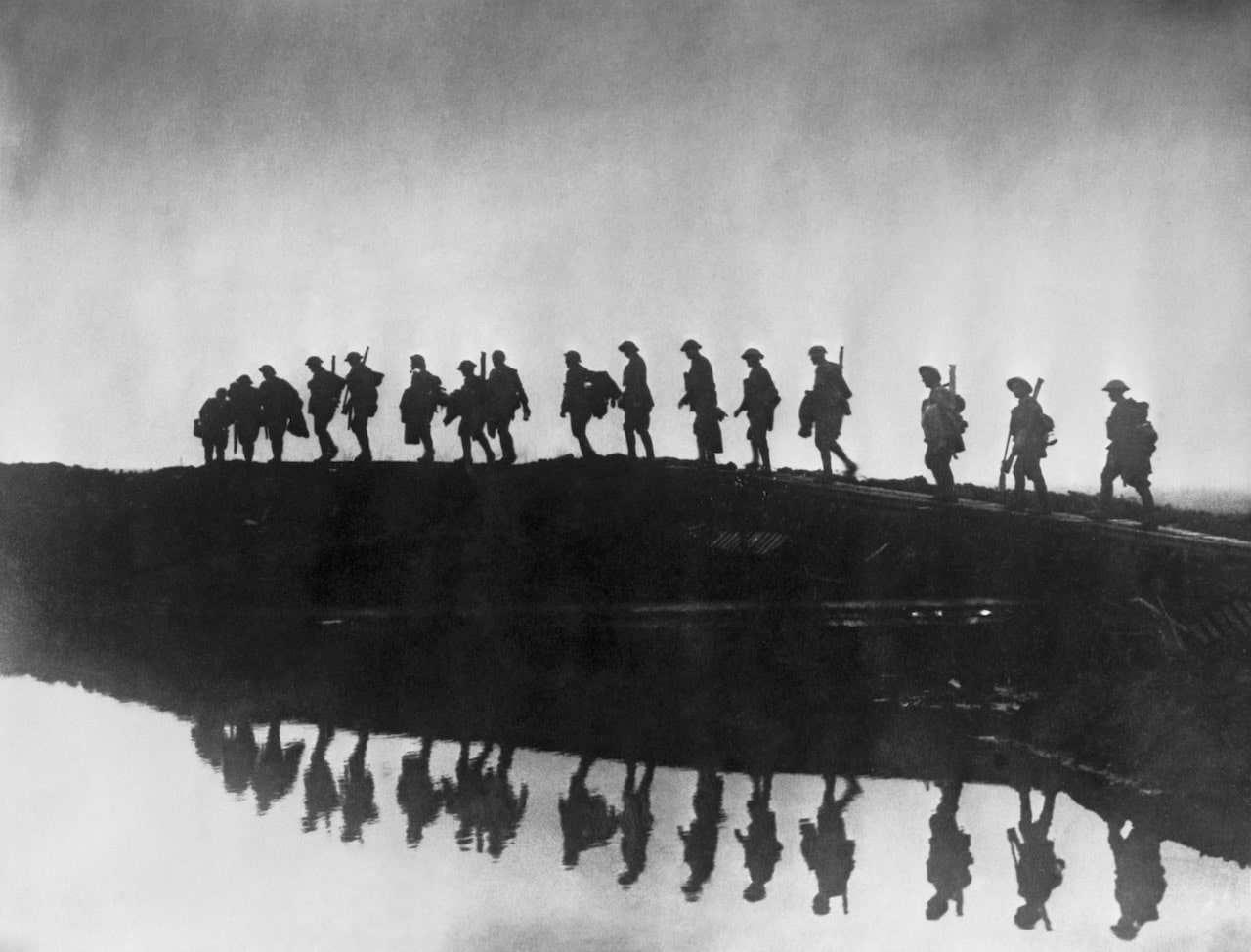
This is the story of a soldier descended from poet William Wordsworth, who held the value that has come to be nostalgically known as as “understated British grit”, who was discovered in an unmarked grave in a French farm in 2013.

Second Lieutenant Osmund Bartle Wordsworth
The values, the imagery, and the man, are from another age.
For more than 100 years a “Dead Man’s Penny” remained in a box, a bronze commemorative plaque issued as a mark of respect for the sacrifice of millions who died in World War One.
“He died for freedom and honour” then simply, without indication of rank, “Osmund Bartle Wordsworth”.
He was a Second Lieutenant, who was perhaps more suited to the rigours of academia than the horrors of war.

Battle of Waterloo, 1815
His surname and lineage are that of the poet William Wordsworth whose dulcet verses were recited by schoolboys across the land as cacophony of war raged on the European continent.
With what has come to be nostalgically referred to as “understated British grit” Lieutenant Wordsworth returned from Canada, where he had been a professor of classics at the University of Toronto to join the British Army.
The resolve of his convictions was put to the metal almost immediately, for he boarded the RMS Lusitania, which was sunk in May 1915.
Along with his sister he survived the wreckage, though he gave his lifebelt to another passenger.

This proved to be an indication of his courage which would later tragically see him shot through the heart in 1917 in France at the Battle of Arras.
Surging forward to help a machine gun crew, Lieutenant Wordsworth fell and was buried in an unmarked grave by comrades.
The “Dead Man’s Penny” was sent to his parents after the war and then passed down to his great nephew, Jonathan Wordsworth, a retired archaeologist who lives in Inverness, Scotland.
Holding the “penny” in his hand as a boy, Jonathan, as with the rest of his family, was unaware of where his great uncle was buried but wondered how the mystery would ever be solved.

A Memorial Medallion, or Dead Man’s Penny
By chance in 2013, a French farmer discovered the remains of soldiers in his garden in Henin-sur-Cojeul.
Their identities remained unclear and they were given an unmarked grave at the HAC Cemetery, at Ecoust-St Mein near Arras in 2015.
Following research from the Joint Casualty and Compassionate Centre (JCCC), it was possible to use fragments of uniform to establish the regiments the soldiers had served in.
The man who was later found to be Lieutenant Osmund, was wearing buttons which indicated he had once fought in The Oxfordshire and Buckinghamshire Light Infantry.
…soldiers whose identities remained a mystery were designated as “Known unto God”.
In 1917, he transferred to the 21st Company, Machine Gun Corps, who fought in Henin-sur-Cojeul on 2 April and only one officer- Second Lieutenant Wordsworth of the Machine Gun Company-remained unaccounted for.
Rosie Barron of the JCCC then began to search for ancestors of the Wordsworth family and found Jonathan who provided the DNA which proved a match.
It was with a twinge of bitterness, that Jonathan pointed out soldiers whose identities remained a mystery were designated as “Known unto God”.

William Wordsworth
“I am not a religious man,” Jonathan said when reflecting on his great uncle’s life.
“I did feel quite sad because he survived the sinking of the Lusitania coming back from Canada and then goes off to war and gets killed.
“It all seems rather pointless, the whole war. Millions of people were being killed and not really for much gain. Of course it was principled and patriotic, but I just think ‘what a waste’.
“It must have been devastating to lose their sons. Any parent losing a child, even if they are adults, must feel it heavily.
“It has made Remembrance Sunday more personal for me. I always knew that I had this great uncle who had died during the First World War.
“He obviously felt determined to do this even though he was probably more of an academic than a soldier.
“I don’t know of his ability as a soldier, though I am sure he was very competent. He died trying to check on his men. He just felt obliged to go and check on this position.
“I have not been to the battlefields, but my son did go with his school and it was quite a moving experience for him and his classmates.”
Pausing, while speaking over the phone Jonathan, added: “There were about 1.3 million ‘Dead Man’s Pennies’ issued.”
“There was a box because we had various items. It was the only thing connected to him.”
Five years ago Jonathan gave the commemorative plaque to an organisation called Wordsworth Grasmere, which is in Cumbria and looks after “Dove Cottage”.
William Wordsworth lived with his sister Dorothy, from 1799 to 1808 at the cottage.
In the year before he arrived he wrote The Discharged Soldier.
